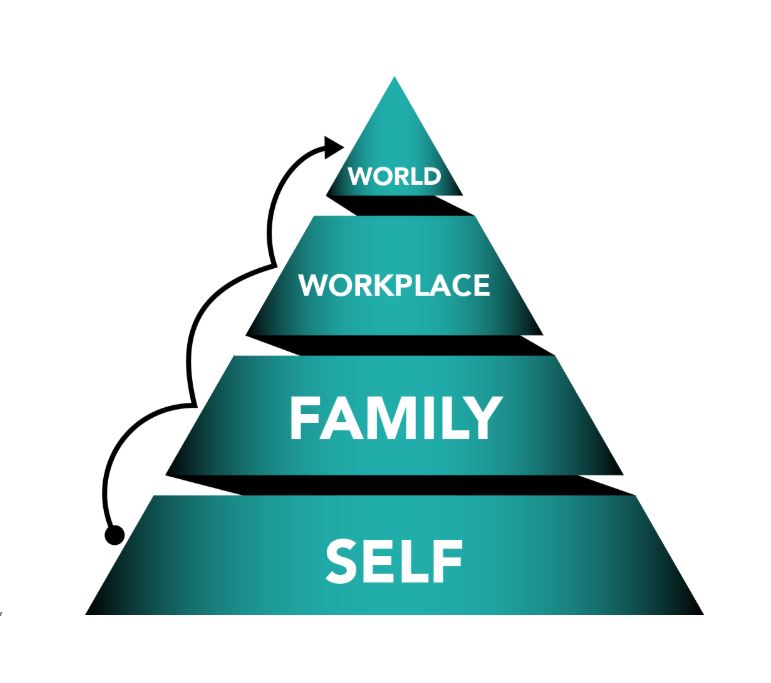“Great works are performed not by strength, but by perseverance.” –Samuel Johnson
Do you have kids or lead a team?
Did you know what you say, and how you praise them, can make a huge difference in how much effort they will put forward in the future and whether they will persist through difficult tasks?
Don’t we all want to raise our children like that?
Don’t we all want teams that will work hard on their own?
If you answered yes to the questions above, the you need to understand what Stanford research says about what really works when praising our children.
I don’t know about you, but I definitely want to raise my kids to work hard and persist through the trials and challenges of life. I want them to grow into adults that will not give up easily when life gets tough, because it will.
Perseverance is certainly one of the most important character traits a human can develop.
If you also want to raise kids into successful adults that have grit, keep reading.
The research
I often write about topics I want to understand better so that I can improve how I apply them to my own life.
This is a topic I have been meaning to write about for a while.
If you haven’t read my prior post on Growth Mindset, you may want to go back and read more about it.
Carol Dweck is a psychology professor at Stanford University that has devoted the last 40 years of her research to understanding how successful people think.
She received her Ph.D. from Yale, and has taught at Columbia, Harvard, and most recently at Stanford.
She is one of the most accomplished psychologists of our time.
One of her most famous studies was conducted with a group of 400 fifth grade students.
She began her experiment by doing a simple ten question nonverbal intelligence test with two groups of students.
They praised one group for their intelligence (i.e. “you’re so smart”) and the other group for their efforts (“I love how hard you worked at that”).
Next, they offered each group a choice.
The students could take a hard test where they would “learn and grow,” or an easy test where “they would easily succeed.”
67% of the group that was praised for intelligence chose the test where they would learn and grow, while 92% of the group that was praised for effort chose the harder test because they seemed to want to learn and grow.
Next, they gave both groups a test that was extremely hard.
The group that was praised for intelligence quickly became frustrated and gave up easily, while the group that was praised for effort persisted for much longer and actually seemed to enjoy the challenge.
Last, they gave both groups a test that was the same level of difficulty as the very first test.
Astonishingly, the group praised for effort increased their scores by 30% overall and the group praise for intelligence actually did worse by 20% overall!
Here is how Dr. Dweck summarizes the principles at work in her own words:
The child or adult hears—”Oh, you think I’m brilliant and talented, that’s why you admire me, that’s why you value me. I better not do anything that will disprove that evaluation.” As a result, they enter a fixed mindset and play it safe in the future and limit the growth of their talents.
Whereas children and adults who are praised for effort begin to think and believe, “It’s really about the growth process and if I don’t take on hard things and really stick to them, then I am not going to grow.”
These studies have enormous implications for how we praise our kids during homework, sports, music or anything involving the learning process.
So how can we apply this information to our lives practically and quickly?
Turn information into action
Here is the simple message—praise effort and the learning process. Avoid praising raw talent or natural ability.
You want to say things like: “I love how you stuck with that task even though it was hard” or “hard things are good for us and the fact that you grew a little today is the really what matters” or “lets try again next time and see how you improved.” Make sure you point out something specific that they tried hard on, and find something that you can be genuine about.
You want to avoid saying things like: “You’re so smart” or “You are the best on your team” or “that was perfect” or “great job.” Saying things like this reflect a kind of final assessment of fixed abilities, they don’t encourage doing hard things for the sake of learning and growth—and actually getting much better in the long run.
Renowned executive coach Marshall Goldsmith often says, “You can either focus on looking good, or getting good—but you can’t do both.” This idea is clearly at the heart of today’s message. Try to forget about wanting your kids to look good all the time and instead help them focus on getting a little better every day. Play the long game.
If you lead people, you can also apply these principles when coaching your team for improved performance. The goal should be to create an organizational culture where trying hard things, failure, and experimentation—are all valued. That is how you create a high-performing team.
And for goodness sakes, make sure you lead by example. Laugh at your mistakes, try things that may embarrass you, and welcome alternative suggestions for how to do things. This will keep you humble, check your ego, and create a culture where it is safe to try new things.
Have a great weekend!
Parker
*If you have enjoyed Leadyoufirst.com articles, check out The Next Peak Podcast where Parker co-hosts every other episode.
Want more? Suggested Resources




